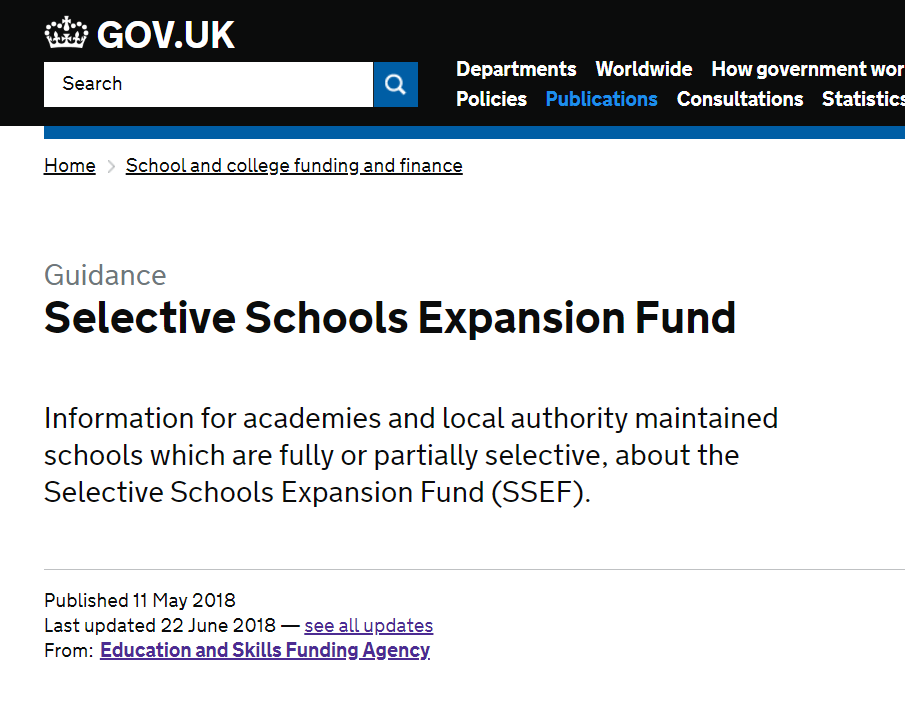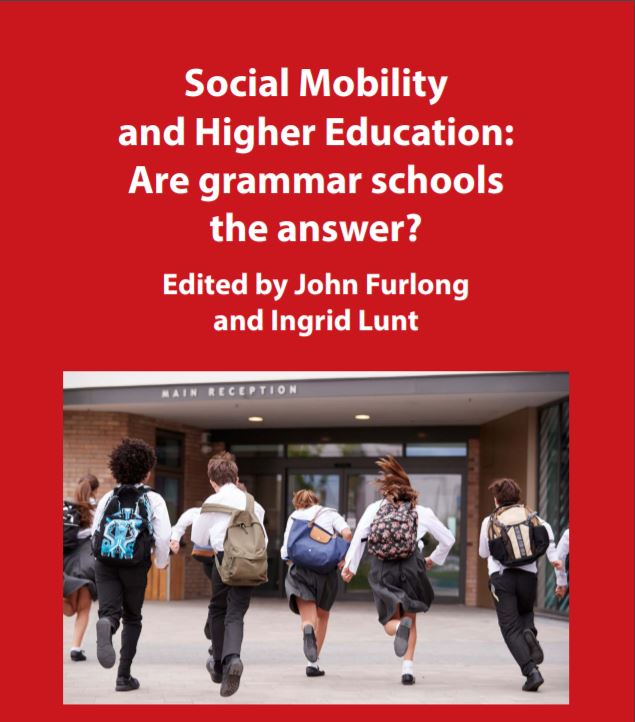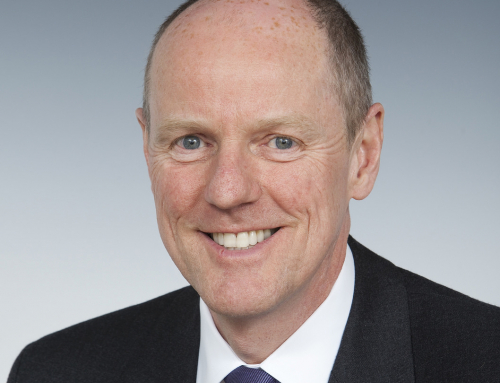 Tribunal challenge seeks openness with 11-plus scores
Tribunal challenge seeks openness with 11-plus scores
On March 4th James Coombs represented himself at a tribunal hearing, seeking the release of raw score data for the 11-plus. This case matters because there is a great deal of secrecy around 11-plus scoring. The judge has not yet issued a ruling, but you can read our report of the tribunal hearing, and we will update you when the verdict is published. James described how transparency with the scores would help the public to understand how much harder it is to get into one school compared to another, and how much that changes each year. The test companies defence is that the scores must be secret to protect their commercial interests. The Guardian wrote about James’ tribunal HERE.
 The Sutton Trust launches ‘Comprehensively Fair’ a campaign for socially just school admissions
The Sutton Trust launches ‘Comprehensively Fair’ a campaign for socially just school admissions
The Sutton Trust is undertaking a major survey into school admissions and seeking to challenge the social inequality caused by wealthy parents monopolising highly rated schools. They propose that schools carry out a fair access reviews to consider how they might improve social cohesion by using admission policies such as ballots instead of distance from school, or offering priority admission for disadvantaged pupils. James Turner, the CEO of the Sutton Trust, said, “Admissions are not a peripheral issue, but one that goes to the heart of the big challenges facing our education system: the attainment gap between rich and poor, teacher recruitment and retention, not to mention the social and cultural divisions brought into sharp relief by Brexit. The survey and details of the project are HERE.
 Selective School Expansion Fund scaled back in round two
Selective School Expansion Fund scaled back in round two
Just six grammar schools were successful with bids for the 2019 round of the Selective School Expansion Fund (SSEF), with only £14.3 million of the available £50 million awarded and three-quarters of grammars turned down. No 2020 funding has been announced. This suggests a lack of enthusiasm for selective education from Boris Johnson’s government. However, its early days, and a DfE statistical release came out on the day of the SSEF announce which seemed to be promoting the popularity of grammar schools.
TES has a good round up of evidence on whether grammar school policy might make a comeback. Ed Dorell argues that the Conservatives might support highly selective sixth forms, as a measure to avoid selection controversy yet keep pro-selection MPs happy. “These post-16 schools would allow ministers (who were still reeling from Theresa May’s botched election) to promote the idea of selective education without trying to open new grammar schools.” Read more about the Selective School Expansion Fund HERE.
 Grammar schools hit with complaints about admissions
Grammar schools hit with complaints about admissions
The admission watchdog’s annual report highlighted a large number of complaints about grammar school entry. There was a mix of complaints from both those who supported or opposed selection, and there were some complaints opposing admission policies for disadvantaged pupils. The King Edward grammar schools in Birmingham recieved many complaints when they prioritised poorer pupils with their policies, and they recently announced that the new policies have admitted 193 disadvantaged pupils. ComprehensiveFuture’s Chair, Dr Nuala Burgess, spoke to the Independent, and said, “It seems only fair that these schools should be coming up with plans to boost the numbers of places going to poorer children, and it is hard to believe that any parent could object to this. We suspect that opposition is coming from families who have traditionally taken the lion’s share of grammar school places, and have come to feel that they are theirs by right.” Read more HERE.
 House of Commons event considers grammar schools and social mobility
House of Commons event considers grammar schools and social mobility
An event co-hosted by the UCL’s Centre for Education Policy and Equalising Opportunities (CEPEO)and the Istitute for Policy Research weighed up the evidence behind the claim that grammar schools are good for social mobility. Lucy Powell MP chaired the event, and the impressive line up of speakers included Dr Matt Dickson, Lindsey Macmillan and Alice Sullivan, all three discussed their research outlined in the recent HEPI paper ‘Social mobility and higher education, are grammar schools the answer?’ There seemed to be a varied range of evidence but it all showed that selective education was more likely to harm social mobility than improve poorer children’s opportunities.
The evidence session was followed by a panel debate considering ‘Why are grammar schools popular’ which included Nick Hillman of HEPI, who outlined his view on five reasons why academic selection refuses to dissapear. Jonathan Gullis, the MP for Stoke on Trent North, and a former teacher, attended the event and was one of only two people to raise their hands in support of the idea grammar schools can boost social mobility. He later tweeted to say, ‘I don’t see why kids from Stoke-on-Trent shouldn’t have the option to go to grammar school. Introduce multiple levels of entry (11+, 13+ and 16+), lock off for kids in those areas to attend (not be bused in) and enable more parental choice.’ When questioned on his support for selection he refused to accept the idea that schools surrounding grammar schools are changed, however he did seem to agree with Lucy Powell’s point that the low numbers of disadvantaged pupls attending existing grammars was unacceptible. Gullis and Powell are both members of the Education Select Committee. which has not yet announced its programme of work for 2020, but unfortunatey it seems unlikely that a review of selection will be on the agenda.
Comprehensive Future needs your financial support, please consider donating to help us continue our campaign. DONATE NOW.





